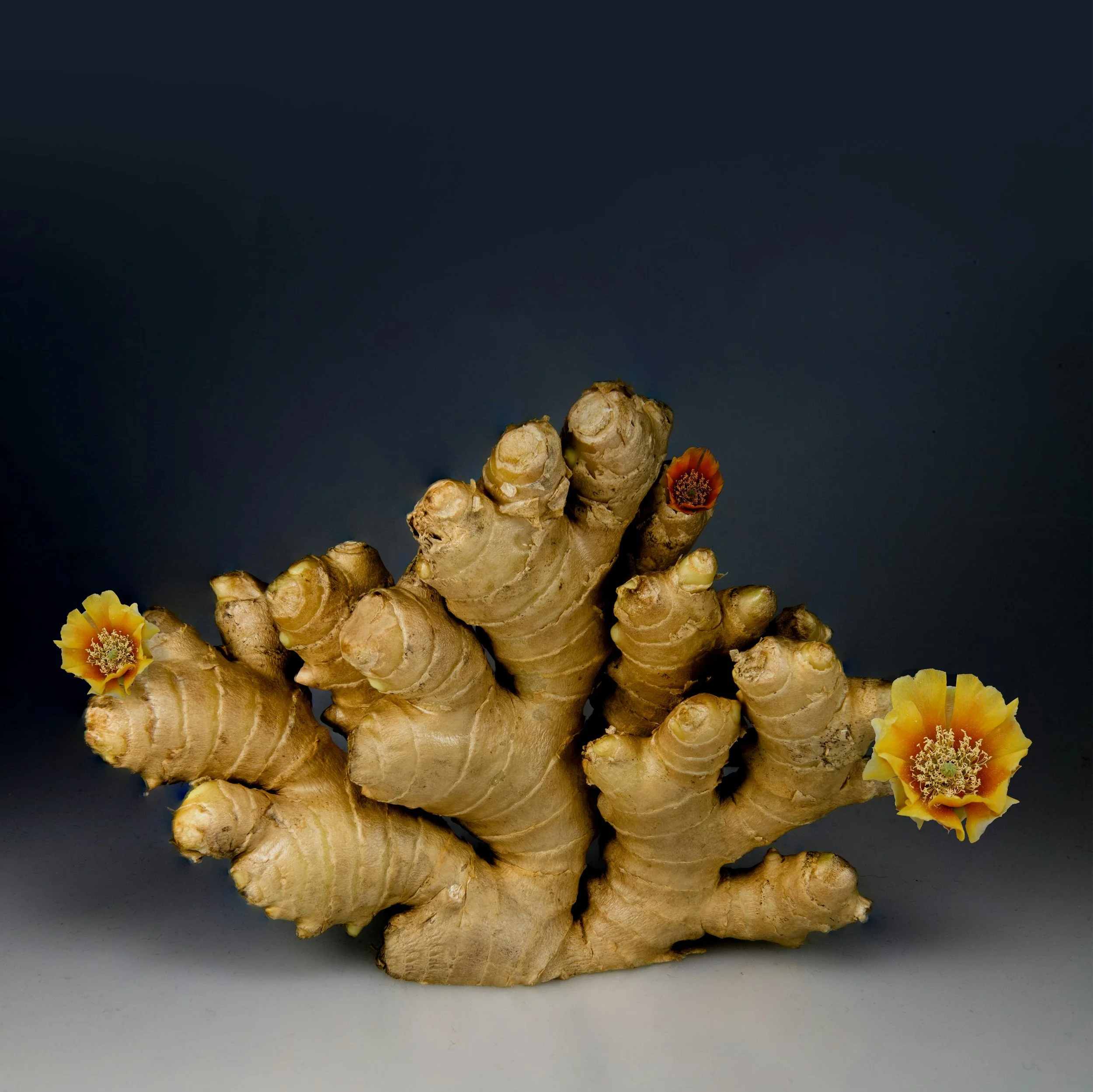Herbal Medicine at AcuHerb Community Circle
For centuries, herbs have been used as gentle yet powerful allies for health. Each plant carries its own flavor, temperature, and affinity for certain systems in the body. By tasting herbs, you’re connecting directly with their essence—the way traditional healers have always done. Below you’ll find a short introduction to some of the herbs we’re sharing in our clinic.

-
Burdock Root
🌱Taste & Nature: Sweet, slightly bitter, earthy, cooling.
Affinity: Liver, blood, skin.
Actions: Detoxifying, gently moves lymph, nourishes and clears heat.
Common Uses: Promotes clear skin, supports liver function, and aids digestion.
Uncommon Uses: Used in traditional formulas for joint discomfort and as a nutritive spring tonic.
Why taste it? Burdock’s earthy bitterness gives a clue to its cleansing role, helping the body “let go” of what it doesn’t need.
-
Ginger Root
🌶 Taste & Nature: Pungent, warm, aromatic.
Affinity: Stomach, spleen, lungs.
Actions: Warms, stimulates circulation, relieves nausea, dispels cold.
Common Uses: Eases digestive upset, supports circulation, relieves colds.
Uncommon Uses: Fresh ginger can reduce morning sickness, while dried ginger is stronger and used for deeper cold patterns in traditional medicine.
Why taste it? Ginger’s spicy kick wakes up the senses, showing how quickly it warms and moves energy.
-
Marshmallow Root
🌿 Marshmallow Root (Cold Brew)
Taste & Nature: Sweet, cool, moistening.
Affinity: Lungs, digestive tract, urinary system.
Actions: Soothes, coats, and hydrates tissues; reduces irritation.
Common Uses: Traditionally used for dry coughs, sore throats, and digestive discomfort such as heartburn or mild gastritis.
Uncommon Uses: Helpful in urinary tract irritation and as a skin-soothing poultice.
Why taste it? Marshmallow root in cold brew releases a silky texture that demonstrates its demulcent nature—literally “slippery” and hydrating.
-
Elderberry
🍇 Elderberry
Taste & Nature: Sweet, tart, cooling.
Affinity: Lungs, immune system.
Actions: Supports immune defense, antiviral, antioxidant-rich.
Common Uses: Popular for easing cold and flu symptoms, and shortening recovery time.
Uncommon Uses: Elder flowers (not just berries) are used to encourage gentle sweating in fevers.
Why taste it? Elderberry’s tart sweetness reflects its role as both nourishment and shield—nourishing with antioxidants, while helping the body resist seasonal illness.
